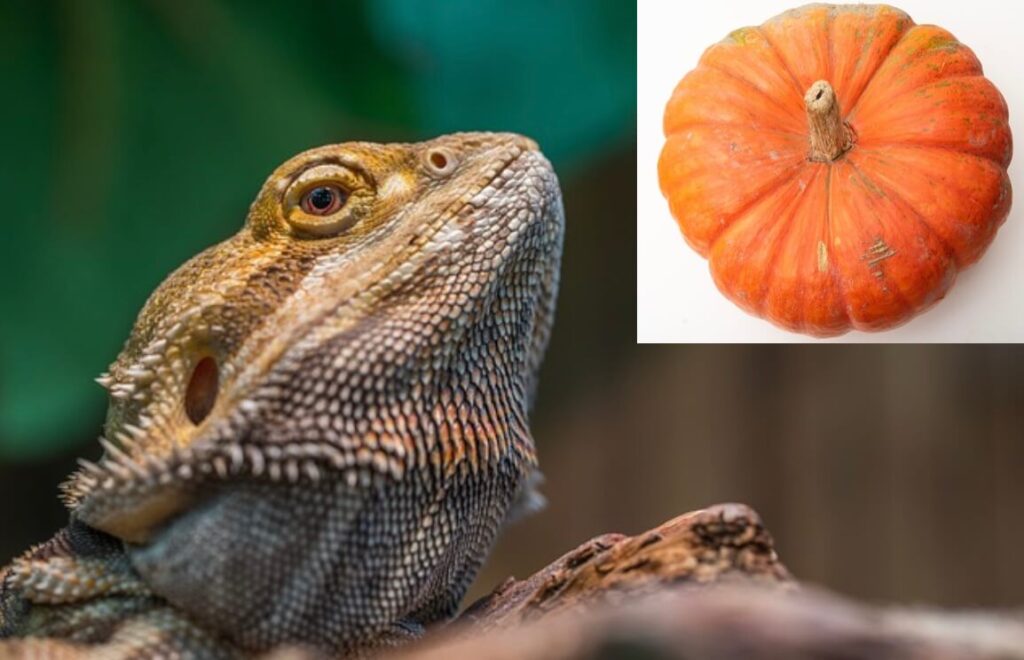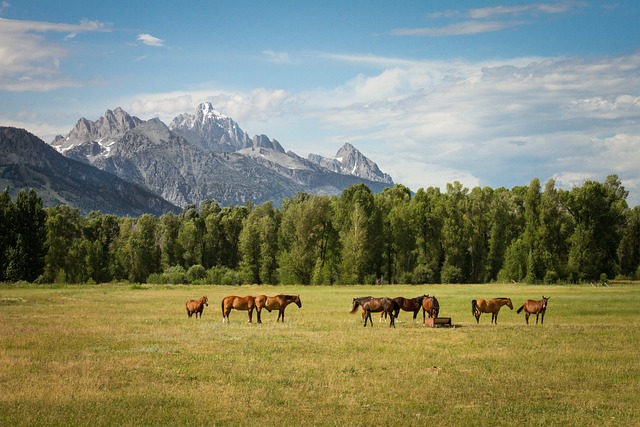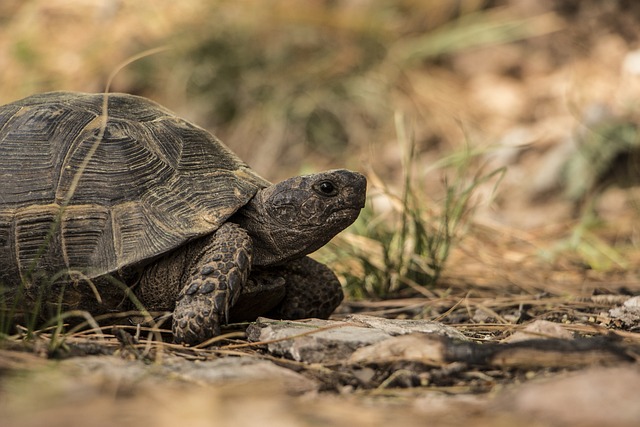Yes! If you’re wondering “Can bearded dragons eat pumpkin?,” the answer is a qualified yes. Bearded dragons can eat pumpkin, although it should be given to them only on occasion due to the potential health hazards.
In this article, we’ll explore the nutritional value of pumpkins for bearded dragons and how to feed them properly. As well, see our full guide to What greens can bearded dragons eat?
Can bearded dragons eat pumpkin?
- Can bearded dragons eat pumpkin?
- Pumpkin Nutritional Value for Bearded Dragons:
- How often should you give pumpkin to your beardie?
- How do I prepare a pumpkin for my bearded dragon?
- Potential risks of feeding pumpkin to your bearded dragon:
- Frequently Asked Questions (FAQ): Can bearded dragons eat pumpkin?
- Foods bearded dragons can eat:
- Getting your bearded dragon calcium:
- Vegetables to feed your bearded dragon:
- Insects to feed your bearded dragon:
- How often should you feed a bearded dragon?
- What should a bearded dragon not eat?
- Recap: Can bearded dragons have pumpkin?
Pumpkin Nutritional Value for Bearded Dragons:
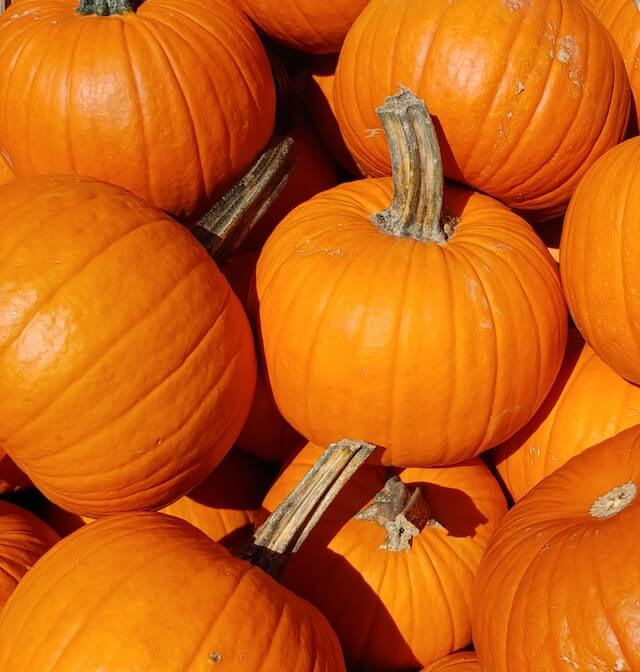
Pumpkin is a wonderful source of nutrients including:
- Fiber (great for bearded dragon’s digestion)
- Calcium (vital for beardie’s growth and bone health)
- Vitamin C
- Iron
- Vitamin B6
- Magnesium
- Vitamin A
Source: Web MD
Pumpkins have a calcium to phosphorus ratio of about 1:2. In bearded dragons, it’s important to be aware of the phosphorus and calcium content in food you feed them. Why? Bearded dragons need a good amount of calcium to grow and to maintain bone and muscle health in adulthood. However, phosphorus inhibits the absorption of calcium if there’s too much of it, relative to the calcium amount.
You should aim for a 2:1 ratio of 2 parts calcium to 1 part phosphorus. Pumpkins have the inverse ratio that you want to aim for. We’ve outlined ways to increase your beardie’s calcium intake below as well.
How often should you give pumpkin to your beardie?
You can safely give your beardie pumpkin twice a month, at most. Cut up a sliver about the size of your thumb.
Note: because of pumpkin’s calcium to phosphorus ratio, it’s important to feed them other leafy greens that have more calcium. To be safe, you can also sprinkle calcium powder on your pumpkin to ensure your bearded dragon is getting enough calcium.
How do I prepare a pumpkin for my bearded dragon?
You can feed your pumpkin to your dragon, cooked or raw. Raw pumpkin is best, because you lose some of the nutritional value when it’s cooked. Avoid giving them pumpkin seeds or the skin, as they’re hard for them to chew and digest, and could become choking hazards.
After you’ve washed and cut up a small chunk of pumpkin, make sure to dice it into smaller bits, about one centimeter on each side. We want to do everything possible to avoid creating choking hazards for your little pet.
Sprinkle the smaller chunks into your bearded dragon’s food bowl. If they have leftovers, remove them after 24 hours or when it starts to smell off.
Potential risks of feeding pumpkin to your bearded dragon:
Pumpkin doesn’t have the ideal ratio of calcium to phosphorus, and it is also carb heavy. That’s why we recommend you feed your beardie this vegetable twice a month at most, and mix it in with other greens.
If you were to only feed your beardie pumpkin daily with no other vegetables, they would suffer from a calcium deficiency and over time, it would harm their bone and muscle health.
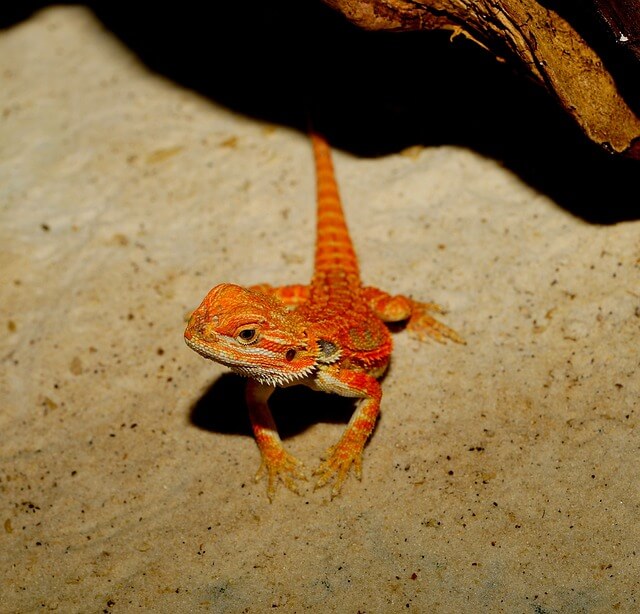
Frequently Asked Questions (FAQ): Can bearded dragons eat pumpkin?
Can bearded dragons eat sunflower seeds?
Yes, bearded dragons can eat sunflower seeds. However, while they have some nutritional value, they are too high in fat to be fed to bearded dragons daily. Stick to giving sunflower seeds to your beardie every few weeks at most, as a treat.
What fruit can bearded dragons not eat?
High acid fruit like citrus should never be fed to your bearded dragons. This includes lemons, limes, oranges, grapefruits, and kumquats. As well, avoid feeding them avocados!
What foods do bearded dragons love most?
Bearded dragon’s favorite food would have to be live bugs, which is typically crickets or roaches.
Can bearded dragons eat watermelon?
Bearded dragons can eat watermelon, every few weeks and only in small quantities.
Can bearded dragons eat cranberries?
Technically, bearded dragons can eat cranberries, but it shouldn’t be fed to them more than twice a month. The sugar content is too high in cranberries for beardies to eat regularly. For more on this topic, check out our guide to feeding bearded dragons cranberries here.
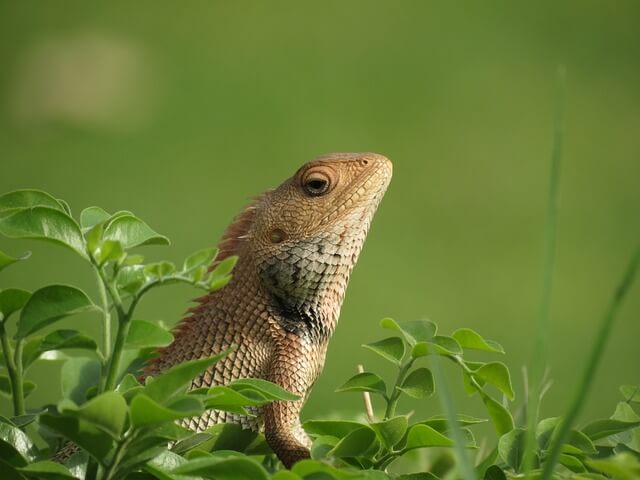
Foods bearded dragons can eat:
If you’re wondering what you should feed a bearded dragon, read our guidelines below. Bearded dragons are insectivores, which just means they thrive on insects as well as plant materials.
If you have a juvenile bearded dragon (between six and eighteen months old), give them about 80% vegetables and 20% live insects.
As your bearded dragon transitions into adulthood, give them the inverse, so 20% plant materials and 80% insects.
Getting your bearded dragon calcium:
Calcium is especially vital to a bearded dragon, especially a young one that is still growing. There are several ways to introduce more calcium into your beardie’s diet:
- Add in more high calcium vegetables like dandelions, bok choy, and collard greens.
- Dust calcium powder over their insects and vegetables to increase calcium levels.
- Make sure they’re getting their 12 hours of UVB exposure as they need this light to be able to properly absorb nutrients.
Vegetables to feed your bearded dragon:
- Peas
- Dandelion
- Green beans
- Cabbage
- Zucchini
- Pumpkin
- See our full list of vegetables to feed your bearded dragon
Note: Bearded dragons can also eat fruit in moderation. See here for a complete list of fruits bearded dragons can eat.
Insects to feed your bearded dragon:
- Crickets
- Kingworms
- Waxworms
- See our full guides to insects you can feed your bearded dragon and worms to feed your bearded dragon
Quick note: Live insects raised by you or bought from the pet store are best because they’re definitely pesticide free.
How often should you feed a bearded dragon?
During the first 3-6 months of your beardie’s life, try to feed them four to five times a day by giving them as many insects as they’d like in 10 minutes. They’re growing and need lots of protein during this stage.
Reduce the number of feedings to about two to three times a day when they’re growing into their juvenile years (between six and eighteen months).
As they become an adult, you can feed them once daily.
What should a bearded dragon not eat?
Avoid feeding your bearded dragon:
- Onions
- Leeks
- Chives
- Mushrooms
- Garlic
- Acidic fruit like oranges, lemons
- Rhubarb (can be toxic to them)
- Avocados (surprisingly, these make them ill)
- Eggplant
- Insects caught in the wild (there may be pesticides covering them)
- Venomous insects
- Dairy of any kind
- Rice and grains of any kind
- Frogs or toads
- Ham or other processed meats
Recap: Can bearded dragons have pumpkin?
- Yes, bearded dragons can eat pumpkin. It should be an occasional treat for them though.
- Feed them this vegetable every two weeks or less, mixed in with leafy greens.
- You can sprinkle calcium powder on top of your pumpkin to boost your dragon’s calcium intake.
- Cut up a thumb sized piece of pumpkin (cooked or raw) and mix the pieces into your beardie’s vegetable mix.
For our full list of food to feed a bearded dragon, see our guide here.
Related articles:

